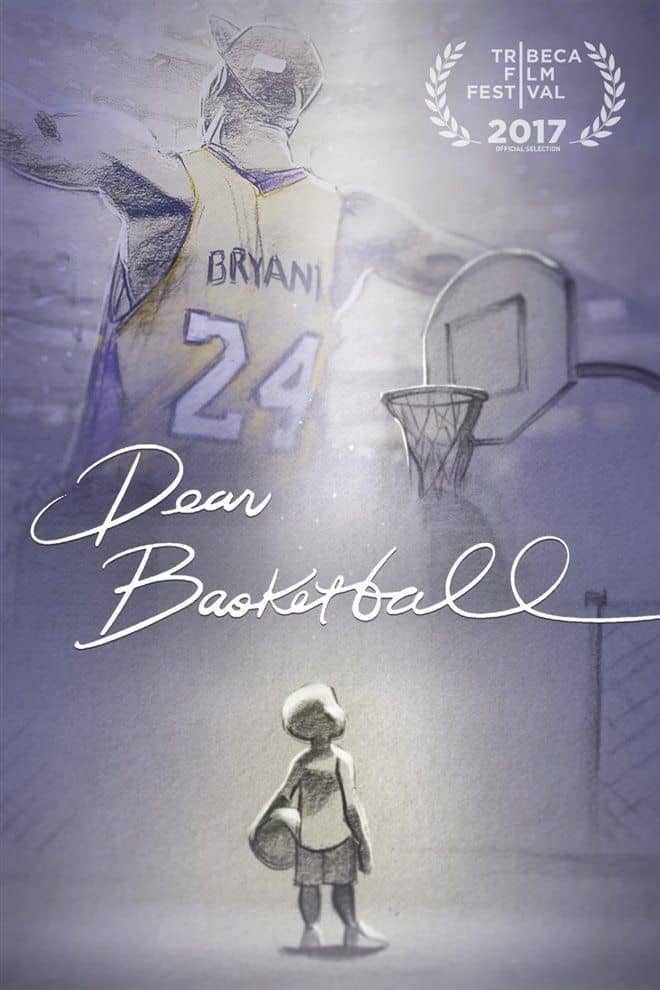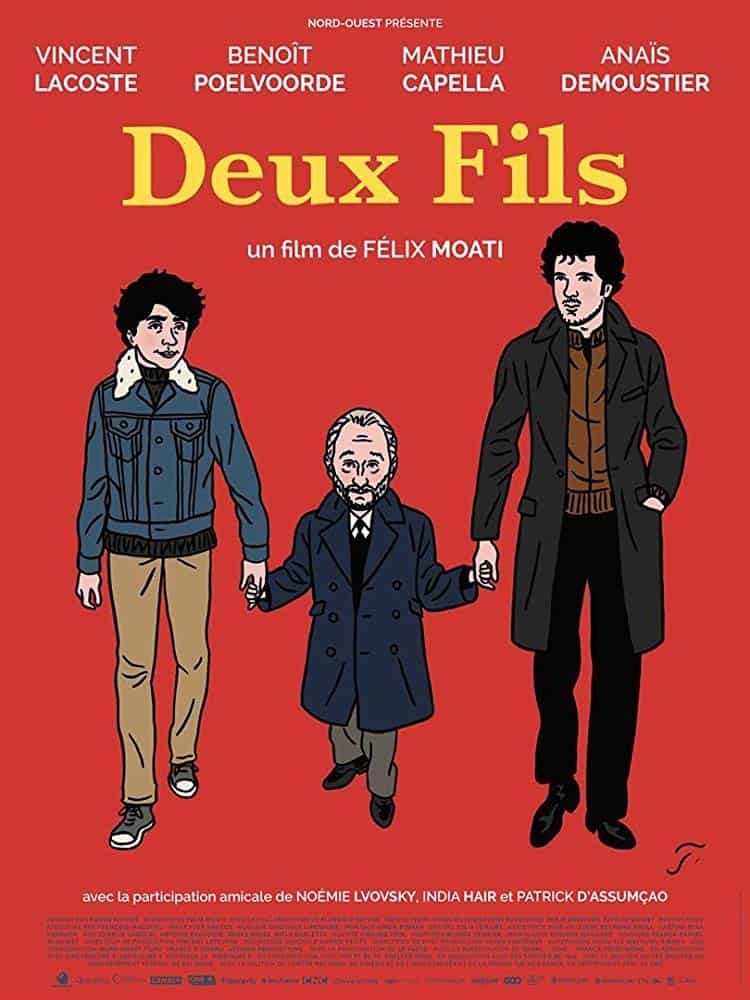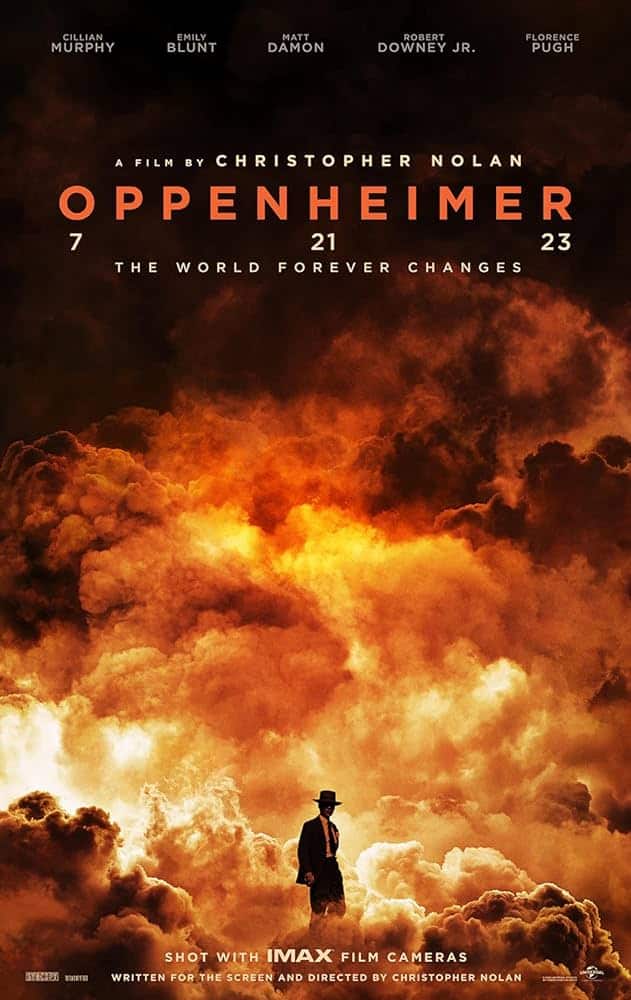
Welcome to the first volume of “Short and Sweet,” the new series focused solely on short film music. I’ve always viewed short film as integral to the filmmaking experience and hugely important for those just starting out (as well as an excellent art form). After all, making short films as a teenager exposed me to a new world of cinema and kickstarted my appreciation. Despite their importance, I’ve found that short films do not get the exposure they deserve; even with major players involved, shorts often struggle to garner publicity and, even then, it’s usually minor and short lived. “Short and Sweet” will be my small part in changing that.
Delete Beach (2016)
An anime written and directed by Phil Collins and scored by Mica Levi has nearly unlimited potential. Delete Beach may not live up to this potential, but it’s still a fascinating short. The film takes place in the near future, where the carbon footprint has been eliminated in what appears to be a utopic society, but wealth disparity and class warfare persists. The dystopic/utopic world is beautifully animated and Collins packs an incredible amount of depth into six minutes, although the exposition and worldbuilding ends up consuming the film at the expense of the story and themes (which I found myself thinking about days after watching). Levi’s score is perhaps their most restrained, shifting between gentle, comforting ambience and grating walls of oppression. They create the dreamlike, idealized society Delete Beach initially portrays before swiftly wiping it away. Once more they show their versatility and how perfect a match they are for any type of sci-fi. (Directed by Phil Collins; Score by Mica Levi).
Dear Basketball (2017)
It’s not often that John Williams takes a subsidiary position in any film, but that’s what happens in Dear Basketball. The short consists almost entirely of Kobe Bryant delivering his passionate love letter to the sport while Williams provides a delicate, heartfelt score. It amplifies the emotional impact of Bryant’s speech without ever upstaging it: the speech is the film. Only once the credits roll does Williams take over in a deluge of triumphant fervor, accentuating what Bryant has already delivered. It’s refreshing to see Williams in this environment, focusing on creating something so warm and earnest without the worry of creating another generational leitmotif (although hints of Jurassic Park make their way in). (Directed by Glen Keane; Score by John Williams).
Sara (2019)
A tight, fast-paced action-thriller, Sara focuses on style and gunplay. The film’s minimal story serves largely to tee up the action. For the most part this works, with solid choreography and a surprisingly high production value. But the lack of characterization, plot arcs, or emotional swings leaves composer Cecilia Muylaert with little to work with. She takes it in stride, creating a tense atmosphere with drawn out, ominous notes before the action kicks off. Afterward, frantic drumming (with electronic-laden sounds underneath) keeps pace with the violence and adds to the intensity, at times adopting a staccato style to mimic the gunfire. It does what every solid score should: amplifies what appears onscreen. (Directed by Bob Fokoua; Score by Cecilia Muylaert; available here).
Fire (Pozar) (2020)
David Lynch is perhaps my favorite short film director as he uses the format to completely unleash his creativity. Fire (Pozar) is no different. The “plot” is opaque and open-ended, told through a series of slow moving, abstractly animated sequences of a pastoral landscape that degrades into a hellscape wrought with interdimensional chaos. Composer Marek Zebrowski is similarly unrestricted, using experimental strings across the entirety of the film’s 10-minute run time. Without Zebrowski’s score, the film – with its slow-moving, minimalist animation, nominal sound design, and no characters – would be little more than a hollow experiment. He singlehandedly invigorates the film, creating a visceral connection to Lynch’s wonderfully bizarre landscapes, creatures, the devastation of the world, and the mass sorrow of total loss. (Directed by David Lynch; Score by Marek Zebrowski; available here).
Lab Rat (2020)
Telling a compelling, self-contained story in fifteen minutes is difficult; telling one with interesting, topical themes even more so. Lab Rat accomplishes both. The CEO of a tech company forces a team of employees to decide who among them is human and who is an android – until they do, they will be locked in a room, fighting amongst themselves until attrition overtakes them. The film raises issues of identity, the nature of relationships, and the role of individuals in an ever-increasingly automated world. Using the medium in this way is the hallmark of classic sci-fi and the film handles those themes naturally and without being heavy-handed. While the film may suffer from spotty acting and dialogue at times, the story and the questions it asks (bolstered by an impressive production quality) are enough to carry the day.
Composer Nainita Desai unsurprisingly delivers a strong score. Early on she introduces a sense of tension and fear. In fact, in a slight twist of dramatic irony, she does so before the characters are thrust into the plot, alerting the viewer to the film’s sinister edge. Desai doesn’t let up, continually heightening the confusion of the characters and their increasing panic and frustration. The score’s most impressive moment comes at the end. Working alongside the film, it creates an uncertainty as to the plot’s implications and consequences that lingers even after the film has ended. (Directed by Nour Wazzi; Score by Nainita Desai; now streaming on Dust)
The Ho Ho Howling (2019)
One Christmas Eve a family gets an unexpected guest; things don’t go well. Evil representations of Santa aren’t new, likely dating back centuries through his pagan roots. But this take is unexpected and deliciously fun, whose kindly old Santa (with very sharp teeth) and psychedelic purgatory allow it to overcome its obvious low budget and amateurish acting. Reed Reimer’s score takes the lead in creating the film’s atmosphere, building conflict early through harsh tones and subverting expectations when Santa is first revealed with holiday-appropriate jolly melodies (which he fortunately does not overuse). The strongest part is during the brief scenes in Santa’s purgatory, where Reimer’s noisy soundscapes enhance the endless nothingness of this blackened void. (Directed by Andrew Neill; Score by Reed Reimer; available here).



